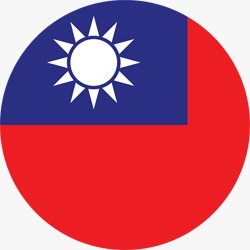If there was a single piece of actionable advice that we could ask everyone to follow, to solve the world’s most pressing problems, it wouldn’t be ‘make healthcare more accessible’ or ‘put an end to all wars’. Rather, it might be: ‘move to a plant-based diet’. Many of the biggest concerns of today, from the major diseases of the affluent (cancer, organ failure, stroke etc.), to environmental destruction, global warming and even food scarcity would be well addressed if majority of the world were to adopt a plant based diet.
If adequately planned, a vegan diet, besides being ethical and sustainable, is also one of the healthiest diets you can go on. Most experts in the field take a similar, measured stance on this matter. The American Dietetic Association states that ‘appropriately planned’ vegan diets are ‘nutritionally adequate’ and that ‘well planned’ vegan diets are ‘appropriate for individuals during all stages of life’[1]. T. Colin Campbell, author of The China Study and a strong advocate of an all-natural, supplement-free vegan diet acknowledges on his website that vegans need to be mindful of certain nutrients and incorporate supplements or fortified foods if needed (Calcium, B12, Vitamin D etc.). Surgeon and author of Proteinaholic, Gareth Davis, lays out in great detail in his book how meat consumption is slowly killing us. However, in his response to a critic, he states how he prescribes his patients not an exclusively vegan diet, but a predominantly plant based diet with some meat.
Despite this consensus among the experts, the notion that a plant based diet needs to be actively managed is not well received by the vegan community. People are generally bad at ditching the all-or-nothing mentality and taking the middle ground; especially when it comes to strongly contested issues. Absolute statements like ‘just eat whole plant based foods, the nutrients will take care of themselves’ or ‘this is how mother nature intended for us to eat’ make great punchlines, but very poor factual statements. Qualified claims on the other hand, such as ‘vegan diets are the healthiest possible diet if you take in fortified…’ or ‘plant based whole foods give you most of the nutrients you need, but you just need to be mindful of…’ don’t exactly make a convincing case when you’re arguing with a non-vegan who’s beating your beliefs into the ground. But these qualified claims are usually the most factually accurate takes on veganism.
It’s better for the community at large if we openly discuss things that need attention on a vegan diet – it’s the best way to prevent annoying health problems and eventually disgruntled ex-vegans. For adequate planning to happen, you need to have a basic understanding of what nutrients need extra attention on a vegan diet and how potential deficiencies can be managed. I’ve written this piece to address both these matters. The last thing I want to do is to overwhelm you with how ‘difficult’ a vegan diet can be, so I’ve skewed towards practical recommendations instead of optimal ones. Constantly monitoring your eating habits and using supplements excessively as a crutch is neither practical nor necessary.
The point of this write-up is to help you understand how to manage a plant-based diet with as little effort as possible, and point out the key nutrients that you have to pay attention to.
Vitamin B12 (Very, very important)
Vitamin B12 is critical to our health; it’s required for DNA synthesis, red blood cell division and a healthy nervous system. A vitamin B12 deficiency can cause anemia and damage to the nervous system[2][3]. Both these conditions in turn contribute to a host of secondary problems, like depression, impaired motor function, dementia and even heart disease[4][5][6]. Prolonged B12 deficiency can cause irreversible damage to the nervous system and brain[7]. There is no reliable plant based source of B12 known to date; it’s well established in the scientific community that vegans are much more likely to have a vitamin B12 deficiency than vegetarians or meat eaters. Take for example, this hallmark study by EPIC Oxford, where a total of 689 men (226 omnivores, 231 vegetarians & 232 vegans) were surveyed for B12 deficiencies. Among the participants, only one omnivore was classified as B12 deficient, while 7% of vegetarians and 52% of vegans were deficient. In another large-scale study, 80% of vegans surveyed in Hong Kong and India were found to be deficient in B12[8]. You absolutely need to supplement your vegan diet with B12. Not doing so will almost certainly bring about a deficiency, which can be very problematic. The good news is that there are plenty of cheap B12 supplements available in the market.
Recommendation: The less frequently you take B12, the more you need to take in absolute amounts. This is because absorption rates go down with larger single serving intakes. To be healthful, the US Institute of Medicine recommends that vegans do one of the following[9]:
- Eat fortified foods two or three times a day to get at least 3 micrograms of B12 daily
- Take one B12 supplement daily providing at least 10 micrograms or
- Take a weekly B12 supplement providing at least 2000 micrograms
For practical purposes, I suggest that you go with option c – this way you don’t have to spend every waking moment worrying about B12 supplementation. Any generic Cyanocobalamin lozenge or liquid spray in the market should suffice for this, it’s perfectly safe[10]. Just make sure that you’re supplementing at least 2000 micrograms, at least once a week. You can supplement more if you feel the need to do so, there have been no adverse effects observed from excess B12 consumption[11].
Omega-3 fatty acids (Important)
Adequate omega 3 intake has been linked to a host of benefits - significant reduction in risk of cardiovascular diseases[12][13], healthier blood cholesterol levels[14][15], reduced inflammation[16][17] and so on. Omega 3 fatty acids have also been proven to help fight mental disorders; several studies have shown that people who consume omega-3 regularly are less likely to be depressed or anxious[18][19][20][21]. One study conducted on 48 patients with clinical depression even found omega 3 fatty acids to be just as effective as Prozac (anti-depressant) in treating depression[22].
You get the point – omega 3 fatty acids play a key role in human physiology, especially mental health. Because they are present in notable amounts only in a few plant foods, vegans who do not consciously optimize their diet for ALA or EPA/DHA intake are likely to be deficient in them[23][24][25][26]. So, if you’ve been on a vegan diet for a prolonged period and you’ve noticed a decline in your mental health, you should supplement or consume more omega 3 fatty acids and observe if your condition gets better. Before we get to the recommendation, here’s a very short primer on the three omega-3 fatty acids you should care about, so you can put things in context:
- ALA (alpha-linolenic acid) – Found in small amounts in a few plant-based foods. This cannot be synthesized by the body. The body can make both EPA and DHA from ALA[27]; this makes ALA an ‘essential’ omega 3 fatty acid that you absolutely need to consume in your diet. ALA is relatively under-researched compared to EPA and DHA. If I oversimplify, the best reason to consume ALA in your diet is for your body to derive EPA and DHA from it, since the latter two have been well researched and shown to provide numerous benefits.
- EPA (eicosapentaenoic acid) – Founds mostly in fish and in small amounts in algae. Can be produced by the body from ALA or DHA.
- DHA (docosahexaenoic acid) – Founds mostly in fish and in small amounts in algae. 40% of the polyunsaturated fatty acids in our brain and 60% of the retina are made up of DHA[28]. Can be produced by the body from EPA.
Recommendation: Optimal omega-3 fatty acid intake is a complex topic. There are many things you need to consider, like the omega-3 to omega-6 fatty acid ratio in your diet, total fat intake, dietary habits which affect conversion rates from ALA to EPA and DHA and so on. But as I’ve said, the last thing I want to do is overly complicate the theory and freeze you into inaction. So, for simplicity’s sake, here are 2 options you can consider:
- Incorporate a few tablespoons of chia seeds or ground flaxseed into your diet often; both these ingredients are loaded with ALA. You still run a small risk of an EPA or DHA deficiencies due to poor conversion rates from ALA[29], but this is a good middle ground for people who prefer not to take supplements.
- Supplement 500mg of combined EPA and DHA through algal oil tablets every day[30]. This should give you most, if not all the potential benefits of adequate omega-3 intake.
Vitamin D (Important, but not if you live in Singapore)
I’m addressing this here because of misconceptions relating to veganism and vitamin D deficiencies. Humans have evolved over time to synthesize vitamin D in our skin. Although vitamin D also occurs naturally in eggs and some fish, the amounts are too low to meet our daily needs[31]. So, technically, both vegans and non-vegans need vitamin D supplements or fortified foods to avoid deficiency if they’re not living in equatorial countries.
Recommendation: If you’re based in Singapore, you probably get enough sunlight and won’t need to do anything; 20-30 minutes in the sun every day (which you hopefully already get without much conscious effort) should provide you with enough vitamin D[32]. If you live in a country far away from the equator (e.g. north side of the US, northern Europe), supplement with vitamin D3. Be mindful to choose a vegan option, most sources of D3 are from animals.
Calcium (Important)
In a large-scale study conducted by EPIC-Oxford, 19,249 meat eaters, 4,901 fish eaters, 9,420 vegetarians and 1,126 vegans (total of 34,696 participants) were surveyed over the course of 5 years for Calcium intakes and reported fractures. Adjusting for demographic differences, vegans had a 30% higher fracture rate than all the other groups[33]. However, after adjusting to people only consuming 525mg of Calcium or more, there was no significant difference in fracture rates between vegans and non-vegans:
Another large-scale study surveyed a total of 1475 people on participants on vegan, vegetarian or omnivorous diets. After controlling for other factors, the average Calcium intake for vegans was 738mg, about 25% below the recommended daily intake of 1000mg; the intake of omnivores and vegetarians were well above 1000mg[34].
A key consideration that people miss is that when it comes to Calcium, it’s not just about how much you consume, but also what portion of it you absorb – this concept is known as bio-availability. Many plant based sources of Calcium are high in oxalates, which bind to Calcium and hinder absorption[35][36]. Absorption rates can range from 5% for foods very high in oxalates to 60% for cruciferous vegetables that are low in oxalates.
This combination of decreased natural intake and a wider bio-availability range is what makes Calcium a nutrient for concern on a vegan diet. Although vegans theoretically can get the daily recommended amount of Calcium entirely from a plant-based diet, they’ve been shown to be deficient in practice. The quantity of vegetables required to reach sufficient Calcium intake make a purely plant-based diet impractical for most individuals[37].
Recommendation: Consume 1-2 servings of Calcium fortified plant milks (soy, almond etc.) or tofu several times a week or everyday if possible – they have roughly the same bio-availability as milk and a few servings should land you within the recommended daily intake[38][39]. If you’re adamant on keeping away from fortified foods and sustaining yourself on an exclusively plant based diet, you need to incorporate lots of foods that are low in oxalate and high in Calcium. A few examples of such foods that can easily be found in Singapore are bok choy, broccoli and kidney beans. I’ll leave you to do the googling if you want a full list.
Iodine (Important)
Iodine is required for healthy Thyroid function, which regulates basic metabolism. Iodine is typically abundant in seafood and seaweed but very scarce in plant based foods. In addition to this, soy and cruciferous vegetables, which most vegan diets are loaded with, have Iodine antagonists called goitrogens, which counter-act the effects of iodine[40]. This combination of decreased intake of Iodine and increased intake of goitrogenic plants primes vegans for an Iodine deficiency; vegans who do not use Iodized salt in their cooking are likely to be Iodine deficient[41][42].
Recommendation: Make sure that you’re using iodized salt in your food instead of just natural sea salt; it’s cheap and readily available. The daily recommended intake for adults is 150 micrograms per day, which you can easily get from half a teaspoon of Iodized salt[43]. If you’re using iodized salt, you don’t have to take additional measures to get in Iodine. If you’re not, consider taking an Iodine supplement a few times a week.
Falling back to a plant based diet... or not?
Many people think of 100% plant-based diets as as reverting back to our ancestral eating habits and giving our bodies what they were built to thrive on. However, there never really was a strong case for this. It’s hypothesized that the human brain started to rapidly develop only after we started cooking and eating meat (great writeup on this by Scientific American here https://www.scientificamerican.com/article/cooking-up-bigger-brains/). The ‘blue zones’ or parts of the world where people live the longest (Okinawa in Japan, Sardinia in Italy, Nicoya in Costa Rica etc.), are not made up of vegans or vegetarians like many die-hard plant food fanatics insist, but rather semi-vegetarians and pesco-vegetarians (fish eaters) – that’s a big difference. There has not been any account of people sustaining themselves exclusively on plant based diets in history until the 1950s. Just to be clear, I’m not implying that an exclusively plant based diet is unideal – I’m just saying that bringing up our ancestral eating habits to justify it makes for a poor case.
My parents are both medical doctors, and they have been vegetarians for a large part of their lives. I’ve seen them quantify and actively manage their health, with frequent blood tests, B12 injections and other supplements when required. Watching them go through this exercise has given me a completely different perspective on veganism.
I think of veganism not as a primal way of eating that we should revert to, but as a modern luxury that we’ve just been able to afford by pushing the frontiers of nutrition science.
It is important that we make this paradigm shift. Fads like raw food diets or ‘trusting mother nature to take full care of us with plants’ diets fall away very fast in the face of such a perspective. We stop trying to reconcile veganism with past, and instead look to modern science to make it work for us.
So, to re-iterate my stand: veganism is a modern luxury that we have to pay for with self-education, discipline and effortful planning.
Sources:
[1] Craig, W. J., & Mangels, A. R. (2009). Position of the American Dietetic Association: vegetarian diets. Journal of the American Dietetic Association, 109(7), 1266-1282.
[2] Aslinia, F., Mazza, J. J., & Yale, S. H. (2006). Megaloblastic anemia and other causes of macrocytosis. Clinical medicine & research, 4(3), 236-241.
[3] Briani, C., Dalla Torre, C., Citton, V., Manara, R., Pompanin, S., Binotto, G., & Adami, F. (2013). Cobalamin deficiency: clinical picture and radiological findings. Nutrients, 5(11), 4521-4539.
[4] Almeida, O. P., Ford, A. H., & Flicker, L. (2015). Systematic review and meta-analysis of randomized placebo-controlled trials of folate and vitamin B12 for depression. International psychogeriatrics, 27(5), 727-737.
[5] Crawford, J. R., & Say, D. (2013). Vitamin B12 deficiency presenting as acute ataxia. BMJ case reports, 2013, bcr2013008840.
[6] Folsom, A. R., Nieto, F. J., McGovern, P. G., Tsai, M. Y., Malinow, M. R., Eckfeldt, J. H., ... & Davis, C. E. (1998). Prospective study of coronary heart disease incidence in relation to fasting total homocysteine, related genetic polymorphisms, and B vitamins. Circulation, 98(3), 204-210.
[7]Van Der Put, N. M., Van Straaten, H. W., Trijbels, F. J., & Blom, H. J. (2001). Folate, homocysteine and neural tube defects: an overview. Experimental Biology and Medicine, 226(4), 243-270.
[8] Woo, K. S., Kwok, T. C., & Celermajer, D. S. (2014). Vegan diet, subnormal vitamin B-12 status and cardiovascular health. Nutrients, 6(8), 3259-3273.
[9] Institute of Medicine (US) Standing Committee on the Scientific Evaluation of Dietary Reference Intakes. (1998). Dietary reference intakes for thiamin, riboflavin, niacin, vitamin B6, folate, vitamin B12, pantothenic acid, biotin, and choline. National Academies Press (US).
[10] European Food Safety Authority (September 25, 2008). "5′-deoxyadenosylcobalamin and methylcobalamin as sources for Vitamin B12 added as a nutritional substance in food supplements: Scientific opinion of the Scientific Panel on Food Additives and Nutrient Sources added to food". EFSA Journal. 815 (10): 1–21. doi:10.2903/j.efsa.2008.815. "the metabolic fate and biological distribution of methylcobalamin and 5′-deoxyadenosylcobalamin are expected to be similar to that of other sources of vitamin B12 in the diet."
[11] Kim, W. Y. (2005). Tolerable upper intake levels for vitamins and minerals in functional foods for health (II). The Annual Report of KFDA, 9, 473
[12] Peter, S., Chopra, S., & Jacob, J. J. (2013). A fish a day, keeps the cardiologist away!–A review of the effect of omega-3 fatty acids in the cardiovascular system. Indian journal of endocrinology and metabolism, 17(3), 422.
[13] Leaf, A. (2008). Historical overview of n− 3 fatty acids and coronary heart disease. The American journal of clinical nutrition, 87(6), 1978S-1980S.
[14] Bernstein, A. M., Ding, E. L., Willett, W. C., & Rimm, E. B. (2011). A Meta-Analysis Shows That Docosahexaenoic Acid from Algal Oil Reduces Serum Triglycerides and Increases HDL-Cholesterol and LDL-Cholesterol in Persons without Coronary Heart Disease–3. The Journal of nutrition, 142(1), 99-104
[15] Eslick, G. D., Howe, P. R., Smith, C., Priest, R., & Bensoussan, A. (2009). Benefits of fish oil supplementation in hyperlipidemia: a systematic review and meta-analysis. International journal of cardiology, 136(1), 4-16.
[16] Thusgaard, M., Christensen, J. H., Mørn, B., Andersen, T. S., Vige, R., Arildsen, H., ... & Nielsen, H. (2009). Effect of fish oil (n-3 polyunsaturated fatty acids) on plasma lipids, lipoproteins and inflammatory markers in HIV-infected patients treated with antiretroviral therapy: a randomized, double-blind, placebo-controlled study. Scandinavian journal of infectious diseases, 41(10), 760-766.
[17] Ciubotaru, I., Lee, Y. S., & Wander, R. C. (2003). Dietary fish oil decreases C-reactive protein, interleukin-6, and triacylglycerol to HDL-cholesterol ratio in postmenopausal women on HRT. The Journal of nutritional biochemistry, 14(9), 513-521.
[18] Kiecolt-Glaser, J. K., Belury, M. A., Andridge, R., Malarkey, W. B., & Glaser, R. (2011). Omega-3 supplementation lowers inflammation and anxiety in medical students: a randomized controlled trial. Brain, behavior, and immunity, 25(8), 1725-1734.
[19] Ginty, A. T., & Conklin, S. M. (2015). Short-term supplementation of acute long-chain omega-3 polyunsaturated fatty acids may alter depression status and decrease symptomology among young adults with depression: a preliminary randomized and placebo controlled trial. Psychiatry research, 229(1), 485-489.
[20] Lin, P. Y., & Su, K. P. (2007). A meta-analytic review of double-blind, placebo-controlled trials of antidepressant efficacy of omega-3 fatty acids. Journal of Clinical Psychiatry, 68(7), 1056-1061.
[21] Grosso, G., Galvano, F., Marventano, S., Malaguarnera, M., Bucolo, C., Drago, F., & Caraci, F. (2014). Omega-3 fatty acids and depression: scientific evidence and biological mechanisms. Oxidative medicine and cellular longevity, 2014.
[22] Jazayeri, S., Tehrani-Doost, M., Keshavarz, S. A., Hosseini, M., Djazayery, A., Amini, H., ... & Peet, M. (2008). Comparison of therapeutic effects of omega-3 fatty acid eicosapentaenoic acid and fluoxetine, separately and in combination, in major depressive disorder. Australian & New Zealand Journal of Psychiatry, 42(3), 192-198.
[23] Rosell, M. S., Lloyd-Wright, Z., Appleby, P. N., Sanders, T. A., Allen, N. E., & Key, T. J. (2005). Long-chain n–3 polyunsaturated fatty acids in plasma in British meat-eating, vegetarian, and vegan men. The American journal of clinical nutrition, 82(2), 327-334.
[24] Sanders, T. A. (2009). DHA status of vegetarians. Prostaglandins, Leukotrienes and Essential Fatty Acids, 81(2), 137-141.
[25] Kornsteiner, M., Singer, I., & Elmadfa, I. (2008). Very low n–3 long-chain polyunsaturated fatty acid status in Austrian vegetarians and vegans. Annals of Nutrition and Metabolism, 52(1), 37-47.
[26] Craig, W. J., & Mangels, A. R. (2009). Position of the American Dietetic Association: vegetarian diets. Journal of the American Dietetic Association, 109(7), 1266-1282.
[27] Burdge, G. C. (2006). Metabolism of α-linolenic acid in humans. Prostaglandins, leukotrienes and essential fatty acids, 75(3), 161-168.
[28] Singh, M. (2005). Essential fatty acids, DHA and human brain. Indian journal of pediatrics, 72(3), 239-242.
[29] Brenna, J. T. (2002). Efficiency of conversion of α-linolenic acid to long chain n-3 fatty acids in man. Current Opinion in Clinical Nutrition & Metabolic Care, 5(2), 127-132.
[30] World Health Organization. (2008). Interim summary of conclusions and dietary recommendations on total fat & fatty acids. From the joint FAO/WHO expert consultation on fats and fatty acids in human nutrition, 10-14.
[31] Schmid, A., & Walther, B. (2013). Natural vitamin D content in animal products. Advances in Nutrition: An International Review Journal, 4(4), 453-462.
[32] Reid, I. R., Gallagher, D. J. A., & Bosworth, J. (1986). Prophylaxis against vitamin D deficiency in the elderly by regular sunlight exposure. Age and ageing, 15(1), 35-40.
[33] Appleby, P., Roddam, A., Allen, N., & Key, T. (2007). Comparative fracture risk in vegetarians and nonvegetarians in EPIC-Oxford. European journal of clinical nutrition, 61(12), 1400-1406.
[34] Clarys, P., Deliens, T., Huybrechts, I., Deriemaeker, P., Vanaelst, B., De Keyzer, W., ... & Mullie, P. (2014). Comparison of nutritional quality of the vegan, vegetarian, semi-vegetarian, pesco-vegetarian and omnivorous diet. Nutrients, 6(3), 1318-1332.
[35] Weaver CM, Plawecki KL. Dietary calcium: adequacy of a vegetarian diet. Am J Clin Nutr. 1994 May;59(5 Suppl):1238S–1241S
[36] Weaver, C. M., Heaney, R. P., Nickel, K. P., & Packard, P. I. (1997). Calcium bioavailability from high oxalate vegetables: Chinese vegetables, sweet potatoes and rhubarb. Journal of food science, 62(3), 524-525.
[37] Weaver, C. M., Proulx, W. R., & Heaney, R. (1999). Choices for achieving adequate dietary calcium with a vegetarian diet. The American journal of clinical nutrition, 70(3), 543s-548s.
[38] Zhao, Y., Martin, B. R., & Weaver, C. M. (2005). Calcium bioavailability of calcium carbonate fortified soymilk is equivalent to cow’s milk in young women. The Journal of nutrition, 135(10), 2379-2382.
[39] Weaver, C. M., Heaney, R. P., Connor, L., Martin, B. R., Smith, D. L., & Nielsen, S. (2002). Bioavailability of calcium from tofu as compared with milk in premenopausal women. Journal of food science, 67(8), 3144-3147.
[40] Boyages, S. C. (1993). Clinical review 49: iodine deficiency disorders. The Journal of Clinical Endocrinology & Metabolism, 77(3), 587-591.
[41] Lightowler, H. J., & Davies, G. J. (1998). Iodine intake and iodine deficiency in vegans as assessed by the duplicate-portion technique and urinary iodine excretion. British Journal of Nutrition, 80(6), 529-535.
[42] Leung, A. M., LaMar, A., He, X., Braverman, L. E., & Pearce, E. N. (2011). Iodine status and thyroid function of Boston-area vegetarians and vegans. The Journal of Clinical Endocrinology & Metabolism, 96(8), E1303-E1307.
[43] World Health Organization. (1996). Recommended iodine levels in salt and guidelines for monitoring their adequacy and effectiveness.








